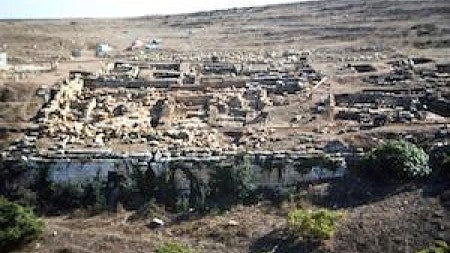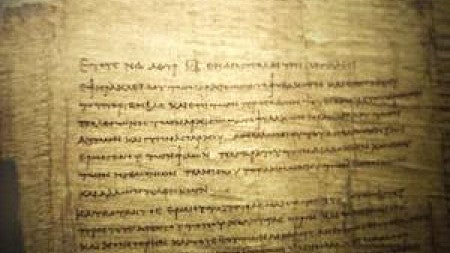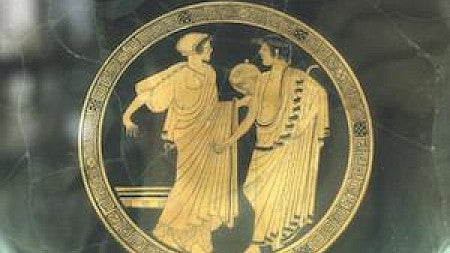Classics is an interdisciplinary field, and we offer courses in ancient Greek and Latin, classical archaeology, classical literature in English translation, and topics such as ancient myth, gender in classical antiquity, and Greece and India. The departments of Anthropology, History, and the History of Art and Architecture also offer courses that count toward a degree in Classics. Students receive individual attention in language classes, and the archaeology program includes fieldwork.
The University of Oregon course catalog offers degree plans and a complete list of undergraduate and graduate courses in the Department of Classics.
Course Highlights
The following featured courses exemplify the variety offered by the Classics department, which includes courses in languages, archaeology, literature, and culture.

CLAS 407/507
The Archaeology of Pompeii
The Archaeology of Pompeii examines the design and daily life of a Roman city using one of the world’s most famous archaeological sites as a case study. From the grand public forum to the humblest private house, and the infrastructures that support them all, students trace the development of Pompeii from its foundation to its destruction by the eruption of Mount Vesuvius.

GRK 101, 102, 103
First-Year Greek
Fundamentals of the Attic Greek language; readings in Attic Greek and in koine. Even after 30 years, teaching beginning Greek is still a thrill. They gave us everything we are – so their language was bursting with ways to express what they had to say. There is simply no language that can compare.

CLAS 314
Gender and Sexuality in Antiquity
Gender and Sexuality in Antiquity presents a variety of texts and documents pertaining to the facets of gender and sexual issues in Greco-Roman antiquity which contributed to shape the Western cultural and political discourse on sexuality. This course examines how the Greeks and Romans regarded sexual behavior, love, gender roles, same-sex love, and how ancient thought on sexuality differs from our current views.
Interdisciplinary Courses
Several courses offered through the departments of the History of Art and Architecture in the College of Design, and History in the College of Arts and Sciences contribute toward a broad understanding of the discipline of Classics and can count toward major requirements in our department.
Art History Courses
322 Ancient Greek Art & Architecture (4 credits)
Introduction to major traditions, functions, and styles of Greek art from the Bronze Age through the Archaic to the Classical and Hellenistic periods.
323 Roman Art & Architecture (4 credits)
Introduction to major traditions, functions, and styles of the art of ancient Italy and the Roman Empire, from the Etruscans through the Republic to the art of Constantine the Great.
421/521 Ancient Mediterranean Art (4 credits)
This course examines art and architecture from the ancient Mediterranean world, exploring material from a particular region/period or through a particular critical/thematic lens.
History Courses
HIST 101 Ancient Mediterranean: (4 credits)
Historical development of the ancient world focusing on the Near East, Egypt, Greece, Rome. Examines major changes in value systems, ideas, social structures, economic institutions, forms of political life.
HIST 407/507 Seminar: (4 credits)
Recent topics include History of Los Angeles, Modern Japanese Culture, Rethinking America in the 1960s, and Stalinism. Repeatable.
HIST 412/512 Ancient Greece: (4 credits)
Survey of Greek history from the Bronze Age to the fourth century BC. We will be examining major political, social, and economic developments that marked this highly dynamic and innovative period. Such developments include the transition from Mycenaean kingdoms to city-states, the colonization of the Mediterranean, economic expansion and the advent of coinage, the age of the tyrants, the emergence of democracy, the Persian Wars, the Athenian empire, the Peloponnesian War and its aftermath until the rise of Macedonia as the dominant power in the Greek world.
HIST 414/514 Ancient Rome: (4 credits)
History and culture of Ancient Rome from the foundation until the end of the Republic (the death of Caesar). Major themes include: the foundation of Rome (literature, archaeology and history), the constitution of the Roman Republic, imperialism, Roman religion and politics, the fall of the republican constitution, Julius Caesar, and his competitor.

